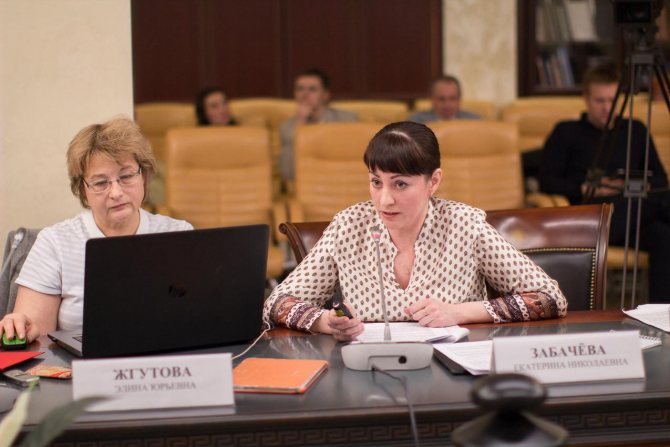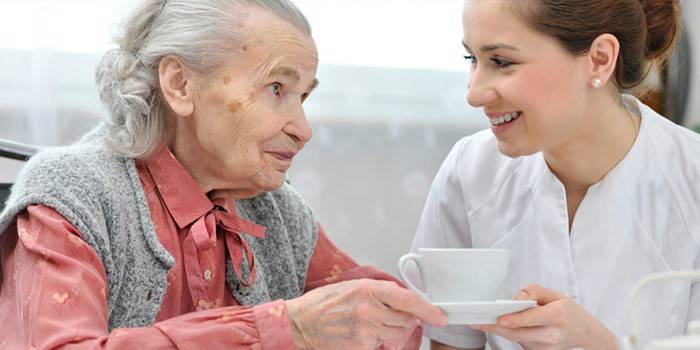Guardianship concept
Guardianship is the process of a guardian acting to care for an incapacitated person who has a physical disability (disability) and is unable to independently perform certain actions.
Incapacitated citizens include:
- adults who have been declared incompetent by a judicial authority;
- persons with confirmed disabilities;
- children under fourteen years of age.
Who can be the guardian of an incapacitated person?
The following categories of people can apply for guardianship:
- an adult (who has reached the age of majority);
- no criminal record;
- without alcohol addiction;
- capable;
- having positive personality traits;
- citizens who own housing (rent residential premises).
- having a normal relationship with the ward;
- satisfactory state of health.
Close relatives of incapacitated persons often express their desire. In certain cases, it is allowed to appoint a person who has temporary, partial legal capacity as a guardian. For example, a person who has reached the age of sixteen can be a guardian if they obtain permission from their legal representative.
What is guardianship
To find out what child custody is, you need to refer to Art. 2 of the Federal Law of April 24, 2008 No. 48 “On guardianship and trusteeship.” According to it, guardianship is considered a form of family arrangement for a minor, in which persons appointed by the competent authorities - guardians - become the legal representatives of the child, performing all legally significant actions on his behalf. According to Art. 145 of the Family Code of the Russian Federation, guardianship is formalized for the purpose of raising, maintaining and educating a child left without parental care. In this case, guardianship is appointed only for children under 14 years of age - after this age only guardianship is possible.
The guardian and the ward are appointed by their consent and taking into account their opinion. If brothers or sisters are left without parental care, the law excludes their separate transfer to different persons, except in cases where their interests require it. Guardianship is established by an act of the guardianship authorities. At the same time, the law allows for the possibility of both gratuitous and paid guardianship.
In the latter case, it is possible in the form of a foster family or foster care.
What are the possible reasons for suspending or terminating guardianship?
Guardianship of minors will end the moment they reach the age of majority (cessation of childhood). It may also end if, after a court decision, the minor has received the right to marry. A child acquires full legal capacity when he begins to carry out entrepreneurial activities.
In order to obtain full legal capacity in such a situation, a person needs to contact the PLO; if the government body refuses, the person has the opportunity to resolve this issue in court. When a person reaches fourteen years of age, guardianship is established over them. Guardianship may end over a child if his natural parents have reached the age of majority.
Another reason why guardianship may be terminated would be the adoption of a child. The guardian will no longer be required to fulfill his obligations. The guardian himself may decide to cease performing guardianship duties. In this case, he needs to prepare an application and submit it to the specialist handling the case at the government agency.
Guardianship does not refuse such treatment and relieves the person of the duties of a guardian. This decision is aimed at not creating conflict, contradictory situations between the parties to the relationship. Guardianship terminates upon the death of one of the parties or transfer to a boarding school.
On what grounds is a person declared incompetent? First of all, it should be understood that the official recognition of a person as incompetent is an opportunity to protect him from harm to himself and others. Only a court can declare a person incompetent. To do this, two very important aspects must be taken into account.
- Medical (implies a psychiatric examination, which indicates the depth, nature and danger of the disorder). This procedure can be performed either at home or in a hospital. If a person refuses, the examination procedure is carried out forcibly.
- Legal (consists in the person’s confirmation of his lack of understanding of the actions he is committing). In this aspect, the court relies on the testimony of relatives, the board of trustees, as well as representatives of medical institutions).
In order to start a case for declaring a person incompetent, it is enough to draw up a paper that must be submitted at the place of residence (if the citizen is undergoing treatment in a medical institution, then the application is written at the actual place of treatment).
What are the possible reasons for suspending or terminating guardianship? This is provided for by the Civil Code, Art. 39-40 and includes the following points:
- death of the person under guardianship or trustee;
- the document indicating the period for appointing a guardian has expired;
- if the trustee himself abandons the ward;
- conflict of interest;
- if the guardian does not fulfill his obligations;
- recognition of the ward as legally competent.
Registration of guardianship is a complex process both from a moral point of view and from a legislative point of view. This issue should be approached rationally. In any case, guardianship makes it possible to maintain a decent life for the person under guardianship, no matter what age he is
Selection of guardians and trustees
When choosing a guardian or conservator, many factors are taken into account. In particular, only a person who has reached the age of 18 and has full legal capacity can become a guardian. Preferential rights in the appointment of guardianship are also established for close relatives of the person in respect of whom guardianship is appointed.
At the same time, when choosing a guardian, the following must be taken into account:
- The desire of the child (provided that he is 10 years old) to choose a guardian or trustee;
- The relationship of the potential guardian with the child, as well as the attitude of his family members towards the ward;
- Moral characteristics of a potential guardian and the basis of his behavior in society and within the family;
- The ability of the guardian to fulfill the obligations assumed, namely the ability to find a common language with the ward and the ability to positively influence the development of the individual.
The legislative framework
| Articles | Description |
| 145 | Algorithm of actions of guardianship authorities when registering guardianship. |
| 146 | Basic requirements for candidates. |
| 148 | Rights of wards. |
| 148.1 | Rights and obligations of persons appointed as guardians. |
Guardianship can also be revoked legally. You can read about a similar phenomenon in verses 39 and 40. Civil Code of the Russian Federation.
Guardianship of an incompetent elderly person and a child is established based on the norms of the Civil and Family Code of the Russian Federation and legislative acts adopted by the Government.
Article 145 of the RF IC describes the procedure for appointing a guardian. Article 146 of the RF IC contains the requirements that applicants for guardianship must meet. Article 148 contains a list of rights of wards. Articles 39, 40 of the Civil Code of the Russian Federation contain a list of reasons for stopping patronage.
- The main document from which all concepts (Article 2), rights and obligations and other issues arise is Federal Law No. 48 “On Guardianship and Trusteeship”, as amended on December 31, 2017.
- The Civil Code defines all the requirements that apply to guardians.
- The Family Code regulates the specifics of guardianship registration.
- The list of diseases that do not allow the registration of guardianship is presented in Decree of the Government of the Russian Federation No. 117 of February 14, 2013.
Article 146 of the RF IC. Guardians (trustees) of children (current version)
1. The commented article is devoted to the requirements that are presented to potential guardians or trustees of children. These requirements largely coincide with the requirements for adoptive parents (see commentary to Article 127). It should be taken into account that the provisions of paragraphs three and four of paragraph 1 of the commented article do not apply to legal relations arising on the basis of acts of guardianship and trusteeship authorities on the appointment of a guardian or trustee for a child, adopted before the entry into force of Federal Law of December 23, 2010 N 386-FZ “ On amendments to Articles 127 and 146 of the Family Code of the Russian Federation.”
Clause 1 of the commented article contains a general rule that only adults with legal capacity can be appointed as guardians (trustees) of children. Accordingly, persons limited in legal capacity or recognized as incompetent cannot be guardians or trustees.
There are similar requirements in other legal acts. So, according to Art. 35 of the Civil Code, only adults with active legal capacity can be appointed.
Persons deprived of parental rights by court cannot be guardians and trustees (see commentary to Article 69).
A potential applicant's criminal record may also be an obstacle to appointment as a guardian or trustee. A criminal record means certain legal consequences of serving a sentence for a crime. A person convicted of committing a crime is considered to have a criminal record from the day the court’s conviction enters into legal force until the criminal record is expunged or removed.
Persons under criminal prosecution are understood as persons against whom a sentence has not yet been passed, but a criminal case has already been opened.
In accordance with Part 6 of Art. 86 of the Criminal Code of the Russian Federation, expungement or removal of a criminal record cancels all legal consequences associated with a criminal record.
It is impossible not to pay attention to the fact that a conviction for certain types of crimes specified in paragraph 1 of the commented article forever deprives the opportunity to become a guardian or trustee, while in other cases this is possible if there is a cleared or expunged criminal record, even if we are talking about committing grave or especially grave crimes.
According to paragraph 4 of Art. 15 of the Criminal Code of the Russian Federation, intentional acts are recognized as grave crimes, for the commission of which the maximum punishment provided for by this Code does not exceed ten years of imprisonment. And in paragraph 5 of this article it is said that intentional acts for the commission of which are punishable by imprisonment for a term exceeding ten years or a more severe punishment are recognized as particularly serious crimes.
As a general rule, persons applying to become guardians or trustees must undergo special training. An exception is made for close relatives of children (see commentary to Article 14), as well as persons who are or were adoptive parents and in respect of whom the adoption was not canceled, and persons who are or were guardians (trustees) of children and who were not suspended from performing their duties (see commentary to Articles 140 - 144).
Particular attention should be paid to the prohibition to act as guardians or trustees for persons in same-sex marriages under the laws of those countries where such marriages are allowed. In some countries, the term “union” rather than “marriage” is used in such cases. Persons who are citizens of such states and are not married also cannot be guardians or trustees.
As a general rule, a guardian or trustee is appointed with their (the guardians' or trustees') consent or upon their written application by the guardianship and trusteeship authority at the place of residence of the person who needs to establish guardianship or trusteeship over him, within a month from the moment when the specified body became is aware of the need to establish guardianship or trusteeship over such a person. If there are circumstances worthy of attention, a guardian or trustee may be appointed by the guardianship and trusteeship authority at the place of residence of the guardian or trustee (Clause 2 of Article 11 of the Law on Guardianship and Trusteeship).
2. Paragraph 2 of the commented article speaks of the need to take into account the moral and other personal qualities of a guardian (trustee) when appointing them. The legislator does not specify exactly what moral qualities are being discussed. In practice, we are talking, first of all, about the tendency to abuse alcohol, having a permanent job, etc. In addition, it is important to exclude persons prone to pedophilia from carrying out this activity.
3. The legislator pays special attention to the health status of potential guardians or trustees. Therefore, persons wishing to become guardians or trustees must undergo a mandatory medical examination. Such examination is carried out free of charge in the manner established by the federal executive body authorized by the Government of the Russian Federation. We are talking, in particular, about the Order of the Ministry of Health of Russia dated June 18, 2014 N 290n “On approval of the Procedure for medical examination of citizens intending to adopt, take under guardianship (trusteeship), into a foster or foster family of orphans and children left without care parents, as well as forms of conclusion on the results of a medical examination of such citizens.”
There is a special list of diseases, in the presence of which a person cannot take a child under guardianship (trusteeship), or take him into a foster or foster family. It was approved by Decree of the Government of the Russian Federation dated February 14, 2013 N 117.
This list includes:
1. Tuberculosis of the respiratory system in persons belonging to groups I and II of dispensary observation.
2. Infectious diseases until dispensary observation is terminated due to stable remission.
3. Malignant neoplasms of any localization of stages III and IV, as well as malignant neoplasms of any localization of stages I and II before radical treatment.
4. Mental disorders and behavioral disorders until dispensary observation is terminated.
5. Drug addiction, substance abuse, alcoholism.
6. Diseases and injuries leading to group I disability.
In paragraph 3 of the commented article, it is especially emphasized that such an examination is carried out within the framework of the program of state guarantees of free medical care to citizens in the manner established by the federal executive body authorized by the Government of the Russian Federation.
Currently, by Decree of the Government of the Russian Federation dated November 28, 2014 N 1273, the Program of State Guarantees for the provision of free medical care to citizens for 2015 and for the planning period of 2021 and 2021 has been approved.
Comment source:
“ARTICLE-BY-ARTICLE COMMENTARY TO THE FAMILY CODE OF THE RUSSIAN FEDERATION” UPDATED
S.P. Grishaev, 2017
What are the consequences of declaring a person incompetent?
The sample application must be drawn up in accordance with the norms of the Code of Civil Procedure of the Russian Federation and it must contain the following information:
- the authority to which the application is submitted;
- personal data of the applicant;
- document's name;
- information about the person who needs to be declared incompetent;
- justification of your requirements;
- link to the evidence base;
- put forward requirements;
- list of documents;
- date of compilation and signature.
What are the consequences of declaring a person incompetent? These factors come into force only after a court decision. Namely:
- prohibited from marriage;
- divorce in this case occurs according to a faster scheme and unilaterally;
- an incapacitated citizen does not have the right to enter into any transactions or sign contracts;
- does not have the opportunity to take part in elections;
- an incapacitated person cannot independently dispose of property.
Payments to guardians and trustees. Benefits for guardians
In accordance with current legislation, all guardians are entitled to certain benefits and cash benefits. It is worth taking into account the fact that payments to guardians are temporary in nature and can be terminated when the term of guardianship ends.
The trustee has the right to receive state financial support to pay for utilities, provide financial support for the child, etc. At the same time, it is worth noting that benefits for guardians and allowances are not established by law, and often depend on regional laws and regulations.
The amounts and size of payments to guardians will depend entirely on regional authorities. Therefore, it is necessary to find out about them in advance from the municipal authorities of your regions.
Author of the article
Registration procedure
How to obtain guardianship over an incapacitated person?
The applicant should do the following in this order:
- Preparing a package of papers.
- Visiting government agencies.
- Submitting an application plus supporting documents.
- Consideration of the appeal.
- Setting the solution and directing the response.
We invite you to read: Response to the requirement for discrepancies between VAT revenue and current account
In order to formalize guardianship over an incapacitated relative, you need to prepare the following documents:
- completed application;
- document confirming permanent income (certificate from place of employment);
- salary certificate for the previous year;
- documentary evidence of ownership of residential space (apartment rental agreement, purchase and sale agreement);
- medical confirmation of legal capacity;
- a document assessing the personal qualities of the applicant from the place of employment;
- autobiography.
A certificate about the condition of the person who requires guardianship is provided by the medical institution performing the supervision.
Guardianship may be denied to applicants who have the following characteristics:
- alcoholism;
- lack of stable income;
- problems with law;
- lack of housing.

If a person does not own real estate, but is able to rent residential premises and pay money under this agreement, this will not be a basis for refusal.
What is the procedure for obtaining guardianship?
As long as a citizen is legally competent, he can independently carry out legally significant actions, understand the essence of what is happening, and take care of himself and his property. However, due to a mental disorder, the court may declare a person completely incompetent. This fact must be confirmed by a medical report, acts of the guardianship authorities, and other evidence.
The law also allows for temporary restrictions on legal capacity, after which a guardianship regime can be introduced. Under guardianship, a citizen can himself carry out legally significant actions, but most transactions require the consent of the trustee. You do not need to obtain permission for small household transactions.
The procedure for introducing guardianship over an incapacitated citizen consists of the following stages:
- conducting a medical examination to determine a mental disorder;
- filing an application with the court demanding recognition of incapacity (relatives, guardianship authorities, and other authorized departments can file a claim);
- issuance of a judicial act;
- submitting an application for establishment of guardianship to the guardianship department and other necessary documents;
- making a decision to appoint a guardian.
The decision to introduce guardianship will be made by the head of the local administration based on the conclusion of the guardianship department. The order will indicate the period for which guardianship is introduced, the procedure for disposing of the property and financial assets of the ward, and other conditions. If the court subsequently finds that the citizen’s legal capacity has been fully restored, the guardianship regime will be cancelled.
What is the procedure for obtaining guardianship? This is a rather lengthy procedure that takes time. Registration of guardianship occurs after a decision is made by the court and in several stages:
- The court's recognition of a person's incapacity is sent to the guardianship authority (at the person's place of residence) within three days after the verdict is issued.
- Guardianship is granted for three months. If a guardian is not found within this period, then this function is entrusted to the guardianship and executive body.
- If there is a guardian, he submits an application to the guardianship authorities.
- Next, seven days are given to process the application; the guardianship authorities may also request additional papers, which must be provided very quickly. Inspection of housing and conditions also takes place at this stage. An additional three days are allocated for completing the entire survey report.
- Then the guardianship authority analyzes and analyzes all collected data within 15 days.
When a decision is made, the applicant is notified within three days by a special act.
To establish the fact of a person’s incapacity, it is necessary to prove his inability to use civil rights, manifested by:
- in not understanding the meaning of what is happening around;
- inability to understand one’s actions and give an account of them;
- loss of ability to direct actions.
Attention: at the state level, guardianship issues are dealt with by the guardianship and trusteeship authorities (TCB).
Adult citizens are deprived of legal capacity only by a court decision. But first, a full examination in a psychiatric clinic is necessary. It is carried out:
- Voluntarily, when the patient consents to manipulation.
- Forcibly, in case of a threat to the life and health of other persons.
Attention: the examination is carried out by specialists using modern developments recognized internationally.
After receiving the doctor's opinion, the next step is to apply to the judicial authorities. It is regulated by Art. 281 of the Civil Procedure Code (CCP). An application for recognition of incapacity can be submitted by:
- relatives living:
- together with the patient;
- separately;
- OPP at the place of registration;
- the medical institution where the citizen is observed;
- the hospital (boarding school) in which he is kept.
Violation of the rights of close relatives for the sake of the “paid parenthood” market

This article reveals the mechanisms for realizing the interest - ensuring the market for children for the sake of “paid parenthood”, through loopholes in the laws, and sometimes direct violation of the law during the transfer, or rather, when creating obstacles to the registration of kinship guardianship in the Russian Federation.
Let me remind you that the UN Convention on the Rights of the Child directly states the child’s right to family ties and the inadmissibility of unlawful interference in the exercise of his right to privacy, family life, inviolability of home or secrecy of correspondence, or illegal attacks on his honor and reputation.
In Russian legislation, in cases where children for one reason or another are left without parental care, the law establishes the preferential right of custody for close relatives, namely:
clause 5 art. 10 Federal Law No. 48 “On guardianship and trusteeship” (as amended on November 28, 2015): 5. Grandparents, parents, spouses, adult children, adult grandchildren, brothers and sisters of an adult ward, as well as grandparents, adult brothers and sisters of a minor ward have a priority right to be his guardians or trustees over all other persons.
clause 1 art. 123 SK. Placement of children left without parental care: 1. Children left without parental care are subject to transfer to a family for upbringing (adoption), under guardianship or trusteeship , to a foster family or, in cases provided for by the laws of the constituent entities of the Russian Federation, to a foster family ), and in the absence of such a possibility, temporarily, for the period until they are placed in a family, they are transferred to organizations for orphans and children left without parental care of all types (article of this Code). When placing a child , his ethnic origin, belonging to a particular religion and culture, native language, and must be taken into account .
clause 2 art. 146 SK. Guardians (trustees) of children: 2. When appointing a guardian (trustee) for a child, the moral and other personal qualities of the guardian (trustee), his ability to perform the duties of a guardian (trustee), the relationship between the guardian (trustee) and the child , and the attitude of family members towards the child are taken into account. guardian (trustee), as well as, if possible, the desire of the child himself.
Russian law also establishes the right to provide preliminary kinship guardianship for a period of 6 months.
Art. 12 Federal Law No. 48 “On guardianship and trusteeship.” Preliminary guardianship and trusteeship:
- In cases where, in the interests of an incapacitated or not fully capable citizen, he needs to immediately appoint a guardian or trustee, the guardianship and trusteeship authority has the right to adopt an act on the temporary appointment of a guardian or trustee (an act on preliminary guardianship or trusteeship).
- Only an adult capable citizen can be temporarily appointed as a guardian or trustee in the cases provided for in Part 1 of this article. The adoption of an act of preliminary guardianship or trusteeship is permitted subject to the provision by the specified person of an identity document, as well as an examination by the guardianship and trusteeship body of his living conditions...
Studying cases of denial of guardianship to close relatives, typical violations on the part of the guardianship authorities , clause 5 of Art. 10 Federal Law 48.
Official reasons for refusal of kinship care:
In practice, there are often cases of denial of guardianship to close relatives, in particular grandmothers, due to the presence in their life history of convictions for crimes that are not classified as grave and especially grave , as well as crimes against sexual integrity, under such articles as Art. 116 - beatings, part 1 art. 318 - use of violence against a representative of authority, not dangerous to life or health, or threat of violence; 213 - hooliganism.
An example from life - a woman receives a criminal record under Art. 116 for standing up for her minor daughter, whose lip was broken until it bled by a classmate studying in the judo section. The mother, in an impulse, runs to the boy and hits him in the face, as a result the boy has a bruise, and she has a criminal record, because of which in the future she will be denied custody of her granddaughter.
And at the same time, since January 2014, by Resolution of the Constitutional Court of the Russian Federation dated January 31, 2014 No. 1-P, the Constitutional Court formulated a legal position regarding the permissible limits of restricting the right to adoption by persons who have or have had a criminal record for crimes not classified as grave and especially grave , as well as crimes against sexual integrity, and later in May 2014, by the Determination of the Constitutional Court of the Russian Federation dated May 13, 2014 No. 997-O , indicated that this legal position is also applicable to the regulation of Art. 146 of the RF IC for candidates for guardians. Thus, guardianship authorities use excessive measures, denying guardianship to close relatives in relation to relatives of minors , which also contradicts common sense and human principles.
This leads to another contradiction to common sense: when guardianship is denied to natural grandmothers, the rights of minor parents are violated (clause 1 of Article 62 of the RF IC), when they exist.
RF IC, Article 62. Rights of minor parents
1 . Minor parents have the right to live together with the child and participate in his upbringing. New edition: 2. Unmarried minor parents, in the event of the birth of a child and when their maternity and (or) paternity are established, have the right to independently exercise parental rights upon reaching the age of sixteen years. Until minor parents reach the age of sixteen, their child is assigned a guardian who raises him or her together with the child’s minor parents. Disagreements arising between the child's guardian and minor parents are resolved by the guardianship and trusteeship authority.
( Clause 2 as amended by Federal Law No. 457-FZ of December 30, 2015) Previous edition: Until minor parents reach the age of sixteen, a child may be appointed a guardian who will raise him or her together with the child’s minor parents. Disagreements arising between the child's guardian and minor parents are resolved by the guardianship and trusteeship authority.
If we argue in the previous wording of Art. 62, when a guardian can be appointed for a child, the grandmother does not need to obtain guardianship for the child, since she, the grandmother, is the legal representative of her minor daughter, who gave birth to the child.
New edition of Art. 62 of the Family Code, on the one hand, allows a young mother to live with the baby and participate in his upbringing (Article 62, Part 1), and on the other hand, requires the appointment of a guardian for the baby (Article 62, Part 2). The last requirement turns out to be practically impossible to fulfill (after all, the guardian must live with both the baby and his mother), and unnecessary, since the teenager already does not live without legal representatives. By its legal essence, this requirement removes the legal representative of a minor parent (for example, the grandmother of a young child) from his rights and obligations to represent the interests of the minor, in this case, to exercise the parental rights of the minor.
In our case, the grandmother was denied guardianship due to minor criminal records that had already been expunged. The family is destroyed, the child is thrown into an orphanage, the mother and grandmother are thrown overboard. Based on what? Based on the fact that when the guardianship visited the apartment, the mother was at school, and the child’s grandmother was with the child - this is classified as “left without parental care”, the child is removed. Here, willy-nilly, you think that someone needs this? And what is this for? And what would have happened if the public had not intervened? Where would the child go? Maybe he would have already gone into foster care? And most importantly, does anyone think about a small child, what is happening to him, is he only to blame for the fact that he was born to a minor mother?
The next typical obstacle is the refusal to accept a guardianship application due to the health or age of the potential guardian.
Violation of Art. 146 IC Guardians (trustees) of children and Decree of the Government of the Russian Federation of February 14, 2013 No. 117 “On approval of the list of diseases in the presence of which a person cannot adopt a child, take him under guardianship (trusteeship), take him into a foster or foster family” .
Here is the situation - a family, a minor is under the guardianship of his grandfather, and also lives with his grandmother. A misfortune happens in the family, the grandfather dies. The grandmother is a group III disabled person, which cannot be a reason for refusing guardianship. However, the local guardianship does not accept the grandmother’s application for guardianship, citing the fact that the grandmother will not receive custody of the child anyway and initiates the process of removing the child from the family. The public, the media, lawyers intervene, and the child manages to be left in the family and the grandmother is given custody.
Or, the mother becomes a group I disabled person, and the court limits her parental rights for health reasons. The grandmother’s application is not accepted, arguing that she is 70 years old and will not be given custody. As a result, the five-year-old child changed 3 foster families in 2 years. What is striking is the insistence of the guardianship authorities in their desire to definitely transfer the child to a foster family, rather than go to a meeting, help the family of origin and arrange guardianship for their own grandmother. Maybe someone's interest is hidden here? And the situations, in turn, as already noted, are typical.
Here is another typical violation - temporary loss of ability to work of a close relative, a candidate for guardianship. For this reason, a close relative does not have time to collect the entire package of documents to formalize guardianship of his grandchildren.
Example. In a family, both parents, father and mother, take turns depriving them of parental rights; the granddaughter lived with her mother and grandmother before the mother was deprived of parental rights, and in fact, the grandmother had been raising her granddaughter (8 years old) for a long time. At the time the mother was deprived of parental rights, the grandmother (54 years old) temporarily lost her ability to work due to a broken leg, and therefore did not have time to collect all the necessary documents on time, and at this moment the grandmother did not have time to receive a court decision on her release from the apartment, mother deprived of parental rights. And guardianship, using a formal approach, denies guardianship to the grandmother. And very quickly, literally in three days, he transfers the child to someone else’s family.
In such cases, in addition to the above violations of Art. 146 SK and Resolution No. 117, paragraph 5 of Art. 10 Federal Law 48 “On Guardianship and Trusteeship”, no assistance was provided in collecting the necessary documents (in particular, an independent request for documents), provided for in paragraph 5 of the RULES FOR SELECTION, RECORDING AND TRAINING OF CITIZENS WHO EXPRESSED A DESIRE TO BECOME GUARDIANS OR TRUSTEES, adopted by the Decree of the Government of the Russian Federation dated 05/18/2009 No. 423 (as amended on 09/10/2015) “On certain issues of guardianship and trusteeship in relation to minor citizens.”
Another similar example. The grandmother applied for guardianship of her grandson 4 times, the obstacle was the registration of the child’s mother in the grandmother’s apartment, the issue of removing the mother from the apartment was resolved in court. The guardianship authority, knowing about the grandmother’s intentions, without waiting for the court’s decision to remove the mother from the living space, contrary to the interests of the child, hastily transfers the baby to a foster family. When you get acquainted with the materials of such cases, the hair on your head stands on end from the chaos that some employees of the guardianship and trusteeship system sometimes commit. Here we clearly see the interest of transferring specifically to a foster family, under paid (paid) care.
The next reason for denying guardianship to close relatives is cramped or poor living conditions .
Here is an example: a grandmother is denied custody of her two granddaughters because there is temporarily no heating in the house, and it is not the grandmother’s fault, and they use an electric heater in the house. Also, the grandmother will not have enough money to provide for the children, because... she will be forced to leave her job and live only on her pension (her small children are 3.5 and 2 years old). Why doesn’t guardianship take into account the possibility of receiving monthly benefits for each child, guaranteed by clause 3 of Art. 148 SK. Rights of children under guardianship (trusteeship) - Children under guardianship or trusteeship have the right to maintenance, funds for which are paid monthly in the manner and in the amount established by the laws of the constituent entities of the Russian Federation.
By the way, in the Moscow region, where this family lives, benefits for children in such cases are provided depending on age at 11.5 and 9.5 thousand rubles, and the national average is 8–9 thousand rubles per month. And still, a decision is made to deny guardianship to the grandmother, in favor of strangers who will receive a salary for raising children.
Among the typical violations when transferring children into the care of close relatives, the factor of transferring children for foreign adoption was identified.
Another example, two sisters 5 and 7 years old, their mother was deprived of parental rights, his uncle wrote a statement about his desire to take custody of his nieces, but the guardianship refused him, citing the fact that his living conditions are not good enough: he lives in a one-room apartment with his wife and a child. It is completely incomprehensible why the guardianship decided that having extra square meters for orphans is more important than a connection with the only loved one in their lives? Later it turned out that the children were being prepared for foreign adoption to Italy. In this regard, the guardianship refused to adopt these girls to another Russian family. Only after the intervention of social activists and the media, the children were able to stay in Russia; later they were accepted by a family from Moscow. Here again we can see an unambiguous motive on the part of the guardianship authorities.
Conclusions:
As mentioned earlier, in 75% of cases the rights of relatives are violated when children are transferred to kinship care , and this occurs with violations of the rights of close relatives, the children themselves (Articles 54, 55 of the Family Code), i.e. these are situations where children should have stay in your family under the care of your relatives. This happens in circumvention of legislation, in direct violation of the law, contrary to common sense and human principles.
Solutions:
Strategic: The existing vicious practice of ignoring kinship care, as well as other practices that allow the child market to exist, can only be changed by changing the vector of family policy, eliminating the material, financial interest that fuels the child market. The main priority should be the actual preservation of the family of origin, support of the family of origin, providing support points for the development and strengthening of the Russian family.
Legislative:
1. It is necessary to legislatively ensure the priority of transferring children left without parental care to their relatives. Currently, the law does not oblige the guardianship authorities to contact relatives and invite them to take over guardianship if the relatives themselves did not find out about the situation and did not submit an application. The law gives the right, but does not oblige, the guardianship authorities to appoint preliminary guardianship over the child if such possibility exists. It is necessary to correct these shortcomings by directing the law to strengthen the priority of the family arrangement of children, the need to appoint preliminary guardianship after the child loses care, prescribing the priority and procedure for contacting relatives, which in many cases allows us to avoid the actual transfer of children to an organization or to strangers, which is traumatic for the child’s psyche.
2. It is necessary to clarify the position of young parents (amendments to Article 62 of the Family Code), preventing the separation of a young mother from her baby, so that the care of the baby, together with the young mother, is taken by her legal representatives (usually parents), and not strangers. It is necessary to eliminate the internal contradiction with the principle already contained in Article 62 of the Family Code that parental rights (as well as civil rights in case of incomplete legal capacity due to age - Article 26 of the Civil Code of the Russian Federation) are exercised by the mother who gave birth not independently, but with the help of her legal representative - the parent or organizations.
3. Amend Art. 146 SK, taking into account the Resolution of the Constitutional Court of the Russian Federation of January 31, 2014 No. 1-P and the Determination of the Constitutional Court of the Russian Federation of May 13, 2014 No. 997-O on the permissible limits of restricting the right to establish guardianship and trusteeship by persons who have or have had a criminal record crimes that do not fall into the category of grave and especially grave, as well as crimes against sexual integrity and sexual freedom of the individual, regardless of severity.
Ekaterina Zabacheva, RVS
Rights
Legislative norms determine that a guardian has the following rights:
- receive state benefits and benefits;
- draw up an appeal to government agencies;
- apply for payments in the event of damage to an incapacitated person;
- stand up to protect the property of the ward by legal means (certify the signature of the ward);
- contact the hospital on behalf of the ward to receive free help.
The state gives the guardian four extra days off every month. If a person does not use these days, he can use the weekend in another month. Due to the state of health of the ward, his guardian may take additional leave from work for a period of two weeks. Paid leave will not be given and wages will not be paid. The guardian also has the right to refuse long business trips to other localities.
The list of responsibilities of a guardian of an incapacitated citizen is as follows:
- Buy products, things and make other transactions to meet the vital needs of the person under guardianship.
- Monitor the hygiene, nutrition and health status of the incapacitated person.
- Uphold the rights of the ward and protect his interests in any controversial situations.
- Carry out responsibilities on behalf of the person under care, for example, paying bills.
- Properly manage payments received from the state (pension, benefits). They can be spent exclusively on the needs of the ward.
- Apply to the court if the legal capacity of the ward citizen is partially or fully restored.
- Protect, defend and try to increase the property of the ward.
When registering guardianship of a child, the list of responsibilities will also include education, conflict prevention and care for all-round development. Until the age of 16, a minor ward is required to live together with his guardian in the same apartment. Children from 16 to 18 years old rent separate housing, in accordance with Art. 36. Civil Code, may upon receipt of the consent of the PLO.
The government has legally established the following rights of guardians:
- Apply to the authorized bodies (court, prosecutor's office, pension fund) for the collection of alimony, provision of benefits, allocation of allowances and other payments.
- Protect the rights of the ward by communicating on his behalf with the court or law enforcement agencies.
- Demand compensation for damage caused to the health of the ward when such an incident is detected.
- Take acceptable measures to protect the movable and immovable property of an incapacitated citizen.
- Contact medical, educational and other institutions to receive certain services. Their cost will depend on the pricing policy of the establishment.
A person caring for an incapacitated citizen does not have the right to freely dispose of his property. Any transactions for the sale, exchange or division of property are discussed with the guardianship authorities. They can agree to such a transaction only in the interests of the ward. Selfish actions are stopped immediately.
The guardian has the right to give gifts to the ward. When transferring property (apartment, car), a gift deed is drawn up and notarized.
We suggest you read: Can a criminal case be initiated for loan debt?
The person appointed by the PLO may incur administrative, criminal or property liability for abuse of rights or inaction. If there was intentional damage to the ward's property, the guardian will be forced to pay compensation. If an official representative fails to act, due to which an incapacitated citizen is injured, administrative or criminal liability is possible.
The rights and obligations of the trustee are provided for by the Civil Code, Art. 37-38.
The guardian has the following legal rights:
- Be the first to appear in the case of your ward, protecting his rights wherever necessary (the guardian always acts in the interests of his ward).
- The guardian can completely control the actions of his protégé.
- The trustee may file lawsuits on behalf of the ward.
- The guardian can live in the apartment of the ward.
- The guardian also has the right to independently (without the ward) visit medical institutions and call a doctor to the ward’s home.
- All social payments (they are paid in the amount of 1,200 rubles) and benefits are under the control of the guardian, and he can freely dispose of them (to support his ward). At the same time, he has the right not to notify the guardianship authorities.
- The trustee can also file a petition with the court to recognize his ward as legally competent if the latter has made positive changes.
The trustee also has obligations to the ward and the state:
- He must carry out an inventory of his ward’s property within three days from the date of assigned duties.
- A guardian must act solely in the interests of his ward.
- If the place of residence of the guardian and his ward has changed, then the guardianship and trusteeship authorities should be notified about this.
- The trustee has the right to defend himself and his ward in any instance.
- If the guardianship authorities give their consent, the guardian can enter into monetary agreements on behalf of the ward.
- Paying the ward's taxes is also the responsibility of the trustee.
- Every year, the guardian must submit a report to the guardianship authorities about the spent funds of the ward.
The relationship between a guardian and an incapacitated elderly person is formalized by an agreement. Responsibilities that are specified in it:
- protect the rights of the ward in all instances;
- make transactions on his behalf;
- manage property based on the interests of the ward;
- organize care;
- provide treatment;
- monitor the condition of housing;
- seek advice from medical institutions;
- organize quality food;
- submit a report to the guardianship authorities.
The guardian has the rights:
- make decisions on behalf of an incapacitated person;
- defend his interests in court and government organizations;
- provide care and control of the health of the ward;
- choose medical institutions;
- submit an application for benefits;
- spend funds on the ward at your own discretion;
- include the time of guardianship in the length of service when calculating a pension;
- write an application for a free vacation.
In case of violation of the terms of the contract, the inspection authorities may deprive the right of guardianship to care for an elderly person. The reasons for this action may be:
- incapacity of the guardian himself;
- lack of necessary care;
- use of guardianship for personal gain;
- the patient being unattended;
- misappropriation of funds;
- deterioration of health due to poor care;
- lack of food for the ward;
- failure to provide required medications;
- restoration of the patient's capacity.
You can issue a waiver of guardianship for an elderly ward by writing a statement. This happens in cases such as:
- change in material condition;
- serious illness of the caregiver;
- loss of legal capacity;
- conflict situations with the ward;
- loss of ability to work;
- decision of the guardianship authorities;
- expiration of the contract;
- death of a guardian or ward.
The guardian bears full legal responsibility and is responsible for raising children under fourteen years of age. He is a legal representative appointed by the court or guardianship authorities. The guardian must fulfill the responsibilities of raising the child. Guardianship can also be established over adult incapacitated citizens (for example, disabled people).
A trustee is a person who provides assistance and assistance in the exercise of rights to persons from 14 to 18 years of age or persons who are not fully capable. Emancipated citizens over 16 years of age can prove their full legal capacity; a guardian is not appointed for them.
When a child or citizen in need of care is identified, specialized authorities search for and appoint a caregiver within one month. Until this time, the guardianship and trusteeship authorities are responsible for him.
Rights and responsibilities of guardians
According to Art. 15 Federal Law No. 48 dated April 24, 2008, the general rights and obligations of persons performing guardianship functions are determined by Art. 36 Civil Code of the Russian Federation. The rights and obligations of the child's guardian and trustee in terms of upbringing and education are determined by the provisions of Art. 148.1 RF IC. It is worth noting that they arise from the moment guardianship is established. However, it is advisable to consider both the rights and obligations of subjects in separate lists.

List of guardian rights
Let us immediately note that the list of rights of a guardian is significantly narrower than the list of responsibilities assigned to him. In accordance with these standards, we will try to determine what rights the guardian has. These are, in particular:
- the right to demand from third parties, including blood parents, the return of the child under their care;
- the right to prevent a child from communicating with third parties if this is contrary to his interests;
- the right to independently determine the methods of upbringing, choose an educational organization for the child, choose the form of education and training;
- the right to dispose of the property and funds of the ward at his own discretion, but only in the interests of the ward;
- the right to enjoy all benefits and receive all benefits and payments guaranteed by the state to persons performing guardianship functions;
- the right to medical, psychological, pedagogical and other assistance in the performance of guardianship functions;
- the right to voluntarily refuse to exercise guardianship powers.
List of guardian responsibilities
The range of responsibilities of a guardian is much wider than the range of rights. Since such an entity is the legal representative of the ward, the duties of the guardian of a minor and incapacitated person will include:
- comprehensive protection of the rights and interests of the ward, representing him in relations with third parties, performing for him all actions of legal significance;
- cohabitation with the ward, except in cases where separation does not contradict his interests and is approved by the guardianship authorities;
- taking care of the care of the ward, providing him with the necessary care and medications;
- care for education and upbringing, if the ward is a child;
- care for health, physical, mental and moral development, if guardianship is established over a minor;
- facilitating the development of the ability to account for one’s actions if the ward is incapacitated;
- filing a petition with the court to restore the legal capacity of the ward;
- conscientious management, protection and disposal of the property of a person under guardianship;
- taking into account the opinion of the ward when performing his functions;
- notification of guardianship authorities about a change of residence;
- filing an application for the assignment of payments required by law for the maintenance of the ward;
- the obligation to bear responsibility for transactions made on behalf of the ward, and so on.
Control over the performance by persons entrusted with guardianship functions of their duties falls within the competence of the guardianship authorities.
How to become a guardian for an elderly person
Who can become a guardian for an elderly incapacitated person? First of all, it is worth noting that the guardian must agree to these powers. This must be a person with a stable psyche, decent. If the guardian and his ward are on good terms, then this is only a plus. But the guardianship and trusteeship authorities put forward their own demands:
- the guardian must be an adult;
- full legal capacity and ability to work of a citizen;
- if the applicant was deprived of parental rights in the past, then such a person is subject to very serious doubts and is unlikely to be able to become a guardian;
- the guardian must not have a criminal record.
It is believed that the onset of old age is at 60 years of age. If a pensioner has a healthy head, but is unable to take care of himself, he can ask for foster care. To do this, you must submit an application to the guardianship authorities. He can choose the person who will help him himself.
When caring for an elderly grandmother, relatives often do this out of attention to the person, out of a feeling of love. However, few people know that they have the right to benefits from the state. Payment will only be made when a special application is submitted. Anyone wishing to arrange care for an elderly relative must collect a package of documents and submit their application to the court. A psychiatric examination of the patient is ordered.
An elderly person is declared incompetent for guardianship purposes in court. If the relative will live with the ward, an additional inspection of the housing is carried out to ensure compliance with all standards. If the requirements are met and all documents are successfully verified by the candidate, the relevant authorities will issue a positive decision to formalize guardianship.
Patronage
What is the best way to arrange guardianship for an elderly person if he can independently decide issues, but is not able to take care of himself or exercise his rights in various bodies? A person must choose a curator himself - not necessarily a relative. You must submit an application to the guardianship authorities and give your written consent.
We suggest you read: How to take a child from your wife during a divorce
Required documents

First of all, a citizen planning to take custody of a minor child must prepare an application. It, along with a package of collected documents, must be submitted to the state trustee authorities at the place of residence. The potential guardian prepares the following documents:
- Identification.
- Metrics of a child in need of guardianship.
- Marriage certificate if the guardian is married.
- Data on the caregiver’s income (salary certificate for the last six months, information from the pension fund).
- Pension certificate, in that case. If the patron's main income is a pension.
- Papers certifying that the future guardian has residential premises in use or possession.
- A certificate certifying that the person taking the child into custody has no criminal record. It is issued by the Department of Internal Affairs.
- Medical certificate. A citizen can undergo a special examination at his place of residence.
- Autobiography of a future guardian. You can write it by hand or type it on a computer and verify it with a signature.
- Characteristics issued at the place of work of the proposed guardian.
- Consent of family members living with the future guardian. The opinion of children over 10 years of age is taken into account.
- Conclusion on the suitability of the guardian’s housing for a minor child to live there (Act of ZhBU, conclusion of the SES).
If necessary, the Guardianship Authorities request documents on their own if the future guardian does not have the opportunity to take them (data on living space, certificates from the Internal Affairs Directorate).
14 days after submitting the application and documents, the guardian receives a response from the guardianship and trusteeship authorities. Representatives of the guardianship authorities may refuse to formalize guardianship. In this case, the reasons for the refusal are explained to the relative in detail. A citizen can appeal a refusal in court.
If the guardianship authorities have made a positive decision, the guardian begins his duties no later than three days after receiving the decision. He has two years to serve as guardian.
Monitoring the performance of duties
The implementation of guardianship over adult incapacitated citizens is controlled by PLO employees. Over the course of a month after the establishment of guardianship, a government agency employee may carry out several on-site inspections. It is carried out at the place of residence indicated in the case materials. Inspections can be carried out according to a plan with a warning to the guardian, and they can also be unscheduled without warning. The first inspection must be carried out with advance notice to the person.
The purpose of the checks is as follows:
- assessment of living conditions;
- assessing the level of care for the person under care;
- human nutrition assessment;
- availability of all essential things, items for personal use.
During the first four months, government agencies will conduct another inspection. An audit may also be carried out during the first year of guardianship. A representative of the PLO authorities has the right to get acquainted with the full report on the embezzlement of funds. If expenses are identified that were not intended for their intended purpose, the guardian may be held accountable. This may be a reason to terminate guardianship.
What documents are needed to register guardianship and does it include a medical certificate?
If your candidacy nevertheless meets all the requirements of Russian legislation, then now in order to establish guardianship or trusteeship of a child you need to collect the necessary package of documents:
- a certificate from the police that there is no criminal record,
- certificates from work confirming salary amounts,
- from a medical institution about health status,
- marriage registration certificate (if any),
- passport of a citizen of the Russian Federation,
- personal characteristics (biography, level of education, place of work, place of residence, health status, availability of completed courses, etc.),
- you can provide additional characteristics from your employer or neighbors,
- written consent of a child over 10 years old.
Particular attention should be paid to the characteristics, since it will make both an initial impression and will present basic information, which is then verified against other documents. It is important to provide all information correctly, competently and as completely as possible.
What documents are needed to register guardianship and does it include a medical certificate? This certificate must be present among other documents that the applicant submits when registering guardianship. The thing is that a person with chronic or life-threatening illnesses cannot obtain guardianship over another person. Among these diseases are:
- tuberculosis;
- any infectious diseases that do not go into remission;
- cancer diseases;
- psychological disorder;
- dependence on alcohol, drugs and other intoxicating substances;
- first group of disability (its causes do not matter).
The applicant can see the necessary doctors (the list of which is established by Order of the Ministry of Health No. 29n 2014.18.06) at any state or private institution that is licensed.
The general list of documents for guardianship includes the following papers:
- certificate from place of work;
- medical certificate;
- consent (must be in writing) to live with an incapacitated person from all adult citizens who live with a guardian;
- a certificate that the applicant has received training to care for the incapacitated;
- autobiography (characteristics from the place of work).
In order to recognize a person as incompetent, the interested party needs to prepare a package of documents and apply to the court with them. A statement of claim should be filed.
The following accompanying documents must be attached to them:
- passport;
- medical report on the presence of psychological disorders;
- written statements of witnesses;
- other documents confirming the need to recognize incapacity;
- receipt of payment of state duty.
Removal from guardianship
A person can remove himself from guardianship duties himself. In addition, the guardianship relationship can be terminated by the POO in the event that violations committed by the guardian are discovered. Suspension is applied if the OOP specialist reveals significant violations. To do this, a person must fulfill his obligations poorly. Suspension is also applied when there is a violation of the interests and rights of the ward.
A group of neighbors can initiate termination. To do this, they must prepare a complaint and submit it to guardianship. A received collective complaint is considered and an investigation is sent within three days from the date of receipt of the complaint.
The evidence base in such cases may include:
- medical certificates;
- testimony of witnesses confirming the inappropriate, unworthy behavior or lifestyle of the guardian.
A guardian may be deprived of the rights and responsibilities if it is discovered that money allocated to the ward is being wasted only for his own needs, without taking into account the needs of the person under guardianship. The person who decided to file a complaint must have a passport and evidence. If these are witness statements, they must be documented in writing in any form.
In this case, the complaint must contain the following information:
- personal data of the applicant;
- indications;
- time of observed violation on the part of the guardian;
- date of compilation and signature.
The completed document must be sent to the Public Organization at the place of residence of the participants in the relationship. The document will be the basis for convening the commission. After the inspection, the commission members draw up a report. This document is compiled in three versions. If government authorities do not respond to the complaint, the applicant has the right to send the complaint by Russian Post.
Termination of guardianship
To find out how you can deprive guardianship, we recommend that you refer to Art. 36 Civil Code of the Russian Federation. According to it, guardianship ends as a result of the release or removal of the guardian from his duties. Regardless of the grounds, deprivation or release from guardianship is permitted only by the guardianship council. Thus, the guardianship authority may deprive a guardian of his powers in the following cases:
- improper performance of guardianship functions;
- violations of the rights and interests of the ward, including as a result of the guilty actions of the guardian;
- identifying facts of violation of the requirements of the law on the protection and management of the ward’s property.
If one of these factors is identified, the guardianship authorities are obliged to conduct an inspection, and if confirmed, they must deprive the person of guardianship. Such a decision is formalized by an act of the guardianship authority, from the moment of which the guardian is considered removed. By the way, he can be relieved of his powers at his own request.
Read more about waiving guardianship.
How is guardianship of an elderly incapacitated person obtained?
How is guardianship of an elderly incapacitated person obtained? If an elderly person does not suffer from mental disorders or is partially competent due to illness or age, then in this option, patronage is arranged with a trust agreement for property management. All papers are prepared by the guardianship authorities; for patronage they are exactly the same as in the standard procedure.
If an elderly person is incapacitated, then the procedure for registering guardianship is no different from the standard one.
Requirements for guardians and trustees
In accordance with current legislation, a guardian and conservator can be appointed only in cases where they meet certain criteria set by the state. We are talking about the full legal capacity of a potential guardian (trustee) and his or her reaching 18 years of age.
At the same time, citizens cannot become guardians (trustees) for the following reasons:
- If a potential candidate has limited or deprived parental rights. However, there are situations when the mother is deprived of parental rights, but the father is not. In such a situation, the father may be appointed as a guardian if he meets all the criteria.
- If the candidate was removed from performing the duties of a guardian (trustee) due to his own fault;
- If the potential guardian has problems with drug or alcohol addiction;
- If the guardian has a criminal record or has been subject to criminal prosecution due to offenses committed;
- If persons who are in a same-sex union, confirmed by the legislation of the country in which the registration took place, are trying to become guardians;
- If the potential trustee suffers from serious illnesses, in particular mental disorders, tuberculosis and other serious infectious diseases. In addition, those citizens who are registered with the state as group I disabled people, or who have had problems with drug addiction, alcoholism and substance abuse, will also be denied.
Case studies

Citizen Krivulya I.S. appealed to the guardianship department with a petition to appoint her as the guardian of her old father. A specialist from a government agency explained to her that this requires a court decision declaring her father incompetent. The woman turned to psychiatry and collected all the medical certificates to confirm that her elderly father had mental disorders and had also suffered a stroke.






